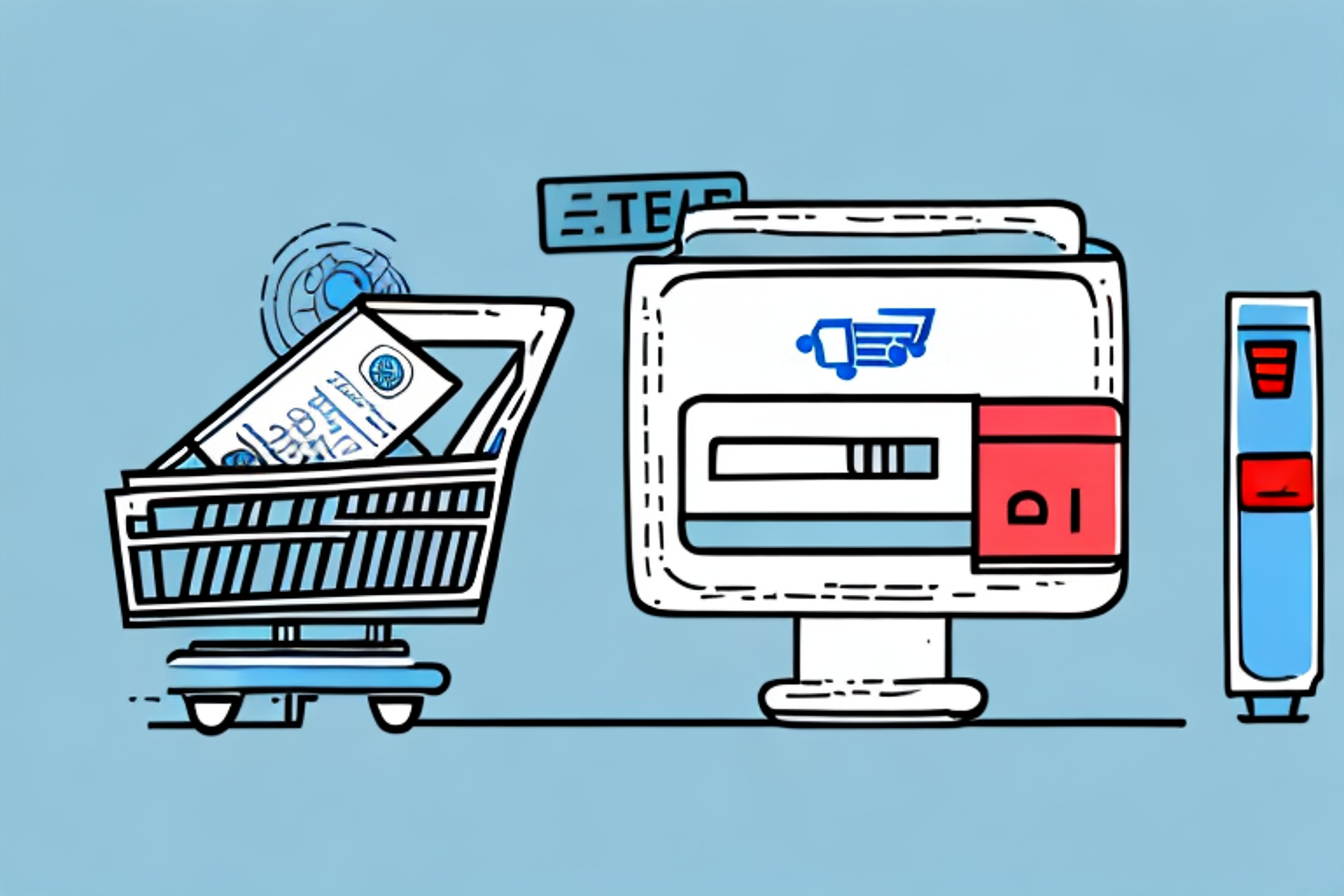The Key Factors Accel Considers for E-Commerce Startups
Learn about the essential factors that Accel, a leading venture capital firm, considers when investing in e-commerce startups.
Posted March 6, 2025

Table of Contents
If you are thinking of starting an e-commerce business, you want to be sure that your business is founded on a solid foundation. This is where Accel comes in. Accel is one of the most respected venture capital firms in the world. They have helped numerous startups achieve great success, and if you want to be the next, it's best to consider the factors that Accel deems most important. In this article, we will explore the various factors Accel considers when investing in e-commerce startups.
Introduction to Accel and its Investment Strategy for E-Commerce Startups
Before we delve into the meat of the matter, it’s essential to understand who Accel is and its investment strategy. Accel is a venture capital firm with a focus on early-stage startups. They have a long and successful track record of investing in companies such as Facebook, Dropbox, and Slack.
When it comes to e-commerce startups, Accel looks to invest in companies that have the potential for high growth. They want to invest in businesses that have an innovative solution to a problem, addressing a gap in the market. Although e-commerce is a highly competitive industry, the firm is not deterred; they believe that there is always room for new ideas and growth.
Accel's investment strategy for e-commerce startups also involves providing support and guidance to the companies they invest in. They have a team of experienced professionals who work closely with the startups to help them scale and achieve their goals. This includes providing access to their extensive network of industry contacts, as well as offering strategic advice on areas such as product development, marketing, and fundraising.
Market Analysis: Understanding the Current E-Commerce Landscape
To invest in a successful e-commerce startup, Accel first conducts a market analysis to understand the current e-commerce landscape. They research the industry and determine the viability of the business model. The market analysis is thorough and includes data on the target audience, their spending behavior, and competitor analysis. These metrics are essential to determine the market size and the potential growth rate.
Additionally, Accel also looks into the technological advancements and trends in the e-commerce industry. This includes analyzing the latest software and tools used by successful e-commerce businesses, as well as the emerging technologies that could disrupt the industry. By staying up-to-date with the latest trends and innovations, Accel can identify potential investment opportunities and help their portfolio companies stay ahead of the competition.
The Importance of Unique Value Proposition for E-Commerce Startups
One of the most critical factors that Accel considers in the e-commerce investment strategy is a unique value proposition (UVP). UVP is the differentiating factor that sets a business apart from its competitors. Accel seeks to invest in companies that have a UVP that resonates with their target audience. A strong UVP is what gets consumers interested in a product or service and drives revenue for the business. It is what helps a business stand out in the crowded e-commerce market.
Having a unique value proposition is not only important for attracting customers but also for retaining them. A strong UVP creates a loyal customer base that keeps coming back for more. Customers are more likely to recommend a business with a strong UVP to their friends and family, which can lead to organic growth for the business.
Furthermore, a unique value proposition can also help e-commerce startups in their marketing efforts. A clear and compelling UVP can be used in advertising campaigns, social media posts, and other marketing materials to attract new customers and increase brand awareness. It can also help businesses differentiate themselves in a crowded online marketplace and stand out from their competitors.
Focus on Customer Experience: How E-Commerce Startups can Enhance it
Accel considers customer experience a key factor in the success of any e-commerce startup. Offering a seamless customer experience is vital to build customer loyalty and brand reputation. E-commerce startups that focus on improving their customer experience have higher customer retention rates. The use of personalization, convenience, and excellent customer service is a way to enhance customers' experience, and Accel sees this as a crucial investment factor.
One way e-commerce startups can enhance their customer experience is by providing multiple payment options. Customers prefer to have a variety of payment options to choose from, such as credit cards, debit cards, PayPal, and other digital wallets. This not only makes the checkout process more convenient for customers but also helps to build trust and credibility with them. Additionally, startups can offer free shipping, easy returns, and a user-friendly website to further improve the customer experience. By prioritizing customer experience, e-commerce startups can differentiate themselves from competitors and build a loyal customer base.
Building a Scalable Business Model: Key Considerations for E-Commerce Startups
Another factor that Accel considers when investing in e-commerce startups is scalability. Accel wants to invest in startups that have a scalable business model. This means that the business can quickly adapt to growth, and there is no limit to how high the company can soar. The scalability factor considers everything from technology infrastructure, supply chain, and marketing.
One important aspect of building a scalable business model is having a clear understanding of your target audience. E-commerce startups need to identify their ideal customer and tailor their products and marketing strategies to meet their needs. This involves conducting market research, analyzing customer data, and continuously gathering feedback to improve the customer experience. By understanding their target audience, e-commerce startups can create a loyal customer base and increase their chances of success in the long run.
The Role of Data Analytics in Supporting E-Commerce Growth Strategies
Data analytics is essential for any business. At Accel, data analytics plays a crucial role in identifying growth opportunities, tracking customer behavior, and predicting trends. With the help of data analytics, e-commerce startups can make data-driven decisions, which can enhance their business growth.
One of the key benefits of data analytics in e-commerce is the ability to personalize the customer experience. By analyzing customer data, businesses can gain insights into individual preferences and behaviors, allowing them to tailor their marketing and product offerings to each customer. This not only improves customer satisfaction but also increases the likelihood of repeat purchases and customer loyalty.
The Significance of Branding and Marketing for E-Commerce Success
Accel considers branding and marketing as vital factors in the success of any e-commerce business. Branding sets a business apart from its competitors, and marketing is what drives customers to the website. Accel looks for startups that have a solid branding strategy and a robust marketing plan in place. This includes everything from website design, social media marketing, and email marketing.
One of the key benefits of having a strong brand and marketing strategy is that it helps to build trust with customers. When a business has a consistent and recognizable brand, customers are more likely to trust the quality of its products or services. Effective marketing also helps to establish a relationship with customers, which can lead to repeat business and positive word-of-mouth referrals.
Another important aspect of branding and marketing for e-commerce success is the ability to adapt to changing trends and customer preferences. With the rapid pace of technological advancements and shifting consumer behaviors, it's crucial for e-commerce businesses to stay up-to-date with the latest trends and adapt their branding and marketing strategies accordingly. This requires a willingness to experiment with new approaches and a commitment to ongoing learning and improvement.
Choosing the Right Technology Stack: Technical Considerations for E-Commerce Startups
Technology is the backbone of e-commerce, and Accel recognizes this as a crucial factor to consider. When investing in e-commerce startups, Accel looks for companies that have a technical team with a deep understanding of the technology stack. This includes everything from front-end and back-end development to database management and cloud infrastructure. Choosing the right technology stack is essential for building a robust and scalable e-commerce business.
Understanding the Competitive Landscape: Analyzing your Competitors to Stay Ahead
Competition in the e-commerce industry is fierce, and staying ahead is key to success. One important factor Accel considers is how well e-commerce startups understand their competitors. Accel favors startups that have a deep understanding of their competitors' strengths and weaknesses. This information can be used to develop a solid business strategy that sets them apart from their competition.
The Importance of Strong Leadership and Team to Drive E-Commerce Growth
Strong leadership and a robust team are essential factors for any successful business. Accel looks for e-commerce startups that have a solid leadership team with a clear vision for the future. Strong leaders can motivate their teams to work towards the common goal, which is essential for growth. A strong team with the right mix of skills and experience is also critical for success. Startups that invest in their team are on the right track for growth.
Funding Strategies for E-commerce startups: Tips from Accel's Investment Experts
Finally, Accel offers funding strategies that e-commerce startups can use to achieve growth. The firm offers insights into how startups can finance their business, how to identify the right investors, and how to use the funds effectively.
Conclusion - Key Takeaways for Aspiring E-commerce Entrepreneurs
In conclusion, if you are an aspiring e-commerce entrepreneur, take note of the factors that Accel considers important when investing in e-commerce startups. A strong unique value proposition, customer experience, scalability, data analytics, branding and marketing, technology, understanding the competition, leadership and team, and funding strategies are all important factors that can contribute to success in the e-commerce industry. By focusing on these factors, e-commerce startups can increase their chances of attracting investment and achieving success in the highly competitive e-commerce industry.










